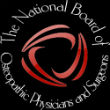
Dear AACE member,
Over the past 48 hours, in the wake of the American Board of Internal Medicine’s (ABIM) dramatic revisions in their controversial MOC process, I have listened intently to the responses of our membership and sister societies and spoken personally to Dr. Richard Baron and other leaders over the phone. The following is a summation of the American Association of Clinical Endocrinologists (AACE) position on MOC reform and our plans for moving forward:
First, AACE wishes to commend the ABIM and their Chief Executive Officer, Dr. Richard Baron, for responding to the concerns of American internal medicine groups, sub-specialty medical societies and, especially, AACE. The changes that the ABIM outlines in their February 3 diplomate email are among those requested by our organization since July, 2014. AACE has long been outspoken in our campaign for MOC reform and we are pleased to see that Dr. Baron and the ABIM are listening.
Positive reforms include:
Suspension of the MOC Practice Assessment, Patient Voice and Patient Safety requirements,
Changing the public reporting language of diplomate status,
Freezing MOC enrollment fees,
Updating the Internal Medicine MOC exam and
Improving MOC medical knowledge self-assessment by recognizing ACCME-approved CME.
However, these reforms are only first steps in converting the currently onerous MOC process into a viable and cost-effective physician activity that truly improves the quality of medical practice in this country. Like our sister societies, the American College of Physicians (ACP) and The Endocrine Society (TES), AACE looks forward to ongoing discourse with the ABIM regarding necessary further refinements in the MOC experience.
Nonetheless, unlike ACP and TES, AACE also supports the principle of maximizing choice for endocrinologists as they pursue lifelong educational goals. While AACE will continue to assist ABIM in whatever way we can to improve their MOC pathway, we will also advocate for other viable certification pathways that have relevance for our membership. We believe that a one-size-fits-all certification pathway for all endocrinology physicians is outdated in 21st century medicine. In 2015, is it reasonable to expect a world renowned clinical diabetes researcher or a full-time imaging thyroidologist to pass the same general endocrinology board exam as a fellow right out of training? At AACE, we believe that our individual members are the best judges of their own continuing educational needs and our mission is to make sure that a variety of relevant options are available.
In this spirit, we invite all our members to visit the newly formed National Board of Osteopathic Physicians and Surgeons (NBOPAS) website at www.NBOPAS.org and to consider this new certification alternative for lifelong learning. Use of this pathway will likely require your political activism with local hospital credentialing committees and insurance carriers, but the journey to a freer and more openly competitive certification system in the United States is likely to improve the process for all. Dr. Paul Teirstein of the Scripps Clinic in San Diego is spearheading the NBOPAS effort and recently delivered a very persuasive argument for his alternative pathway at our January AACE Board meeting in New Orleans (click here to review his slide presentation). I encourage the entire internal medicine community and especially AACE members, to investigate the NBOPAS website with an open mind and to sign up if the pathway meets your needs.
In summary, AACE exists to serve your needs as practicing physicians and we will continue to advocate for credible certification pathways that enhance the endocrine care that you deliver to your patients.
Sincerely,
R. Mack Harrell, MD, FACP, FACE, ECNU
President, American Association of Clinical Endocrinologists
 National Board of Osteopathic Physicians and Surgeons
National Board of Osteopathic Physicians and Surgeons